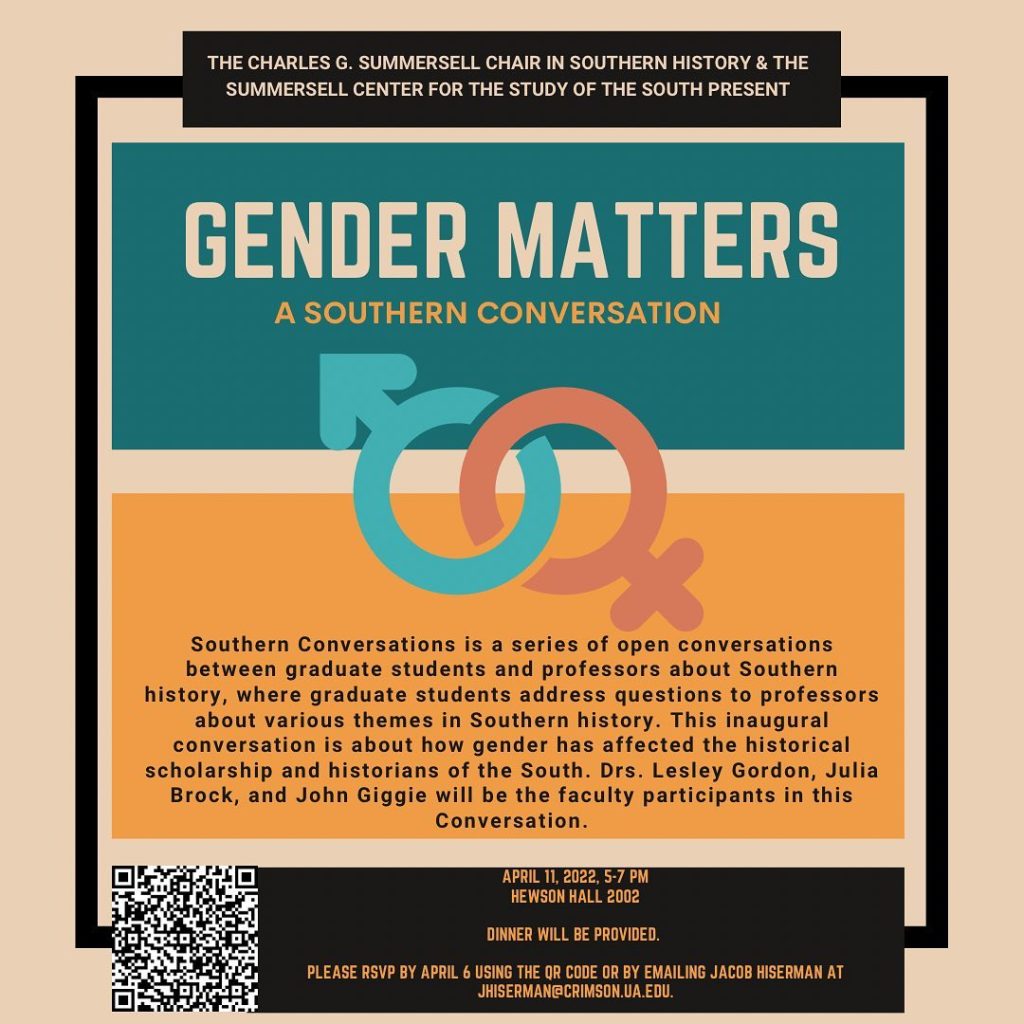 On the evening of April 11, history students and history professors gathered for the inaugural session of Southern Conversations, a series of informal discussions between history students and faculty about southern history. The first Conversation’s theme, “Gender Matters,” covered the past, present, and future of gender analysis in southern scholarship. Everyone started with a delicious meal from Dreamland BBQ. Then, Dr. Lesley Gordon, Dr. John Giggie, and Dr. Julia Brock each gave a short introduction of how gender analysis and their own gendered experiences in academia have shaped their academic careers.
On the evening of April 11, history students and history professors gathered for the inaugural session of Southern Conversations, a series of informal discussions between history students and faculty about southern history. The first Conversation’s theme, “Gender Matters,” covered the past, present, and future of gender analysis in southern scholarship. Everyone started with a delicious meal from Dreamland BBQ. Then, Dr. Lesley Gordon, Dr. John Giggie, and Dr. Julia Brock each gave a short introduction of how gender analysis and their own gendered experiences in academia have shaped their academic careers.
After the professorial introductions, students posed questions to the professors. PhD student Mauren Schindler asked Drs. Gordon & Brock what books on gender & southern history were formative for their scholarship. Dr. Brock queried students about how they have used gender in their own historical work.. MA student Isabella Garrison and PhD student Trace Brusco engaged in a lively exchange with professors and students about what “disruptive” training and preparation for academic employment looks like. Their questions played off Dr. Giggie’s brief outline in his opening remarks of “disruptive” modes of southern historical scholarship he has used to challenge traditional academic hierarchies and forms of archival research. Next, undergraduate history major Gavin Jones raised questions about what perspectives get hidden in both archival and non-archival (i.e., oral history) research and MA student Genesis Ranel inquired about oral history methodology. Undergraduates Callum Campbell and Sasha Zannis asked how undergraduate voices can be better included in southern historical study.
Overall, the students enjoyed the open conversation “with faculty about difficulties and possibilities” in the study of Southern gender and sexuality, how “the conversation was steered by student questions and interests,” and the graduate-undergraduate interaction. All came away with ways to move the study of gender forward in the field and the academy.
This event was sponsored by the Charles G. Summersell Chair in Southern History and the Summersell Center for the Study of the South.